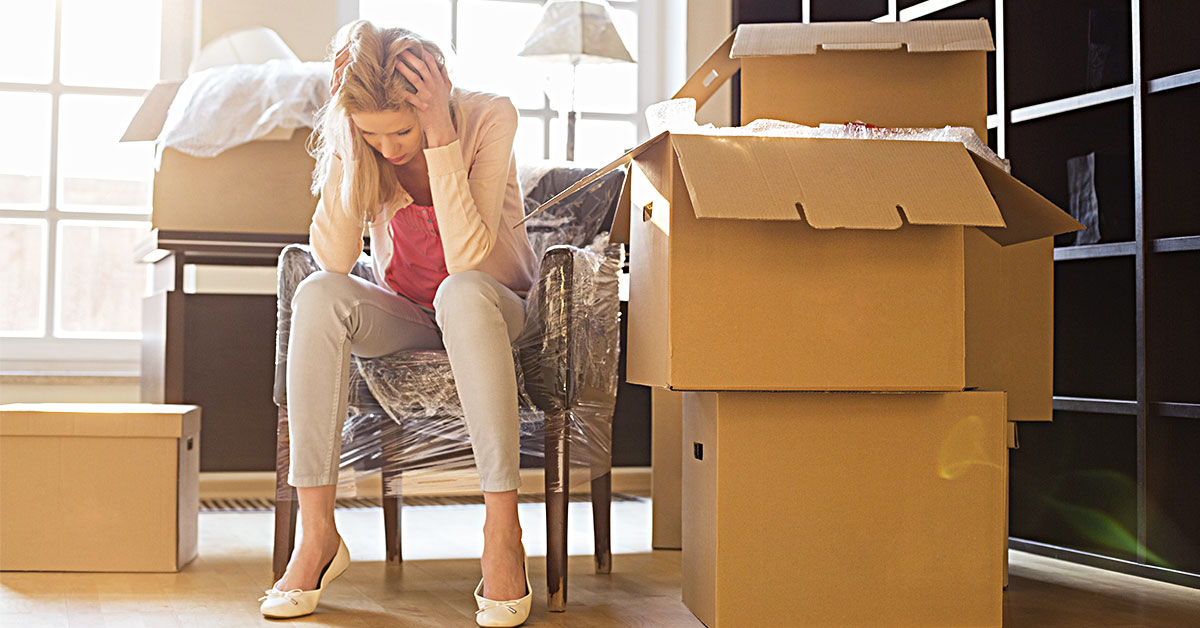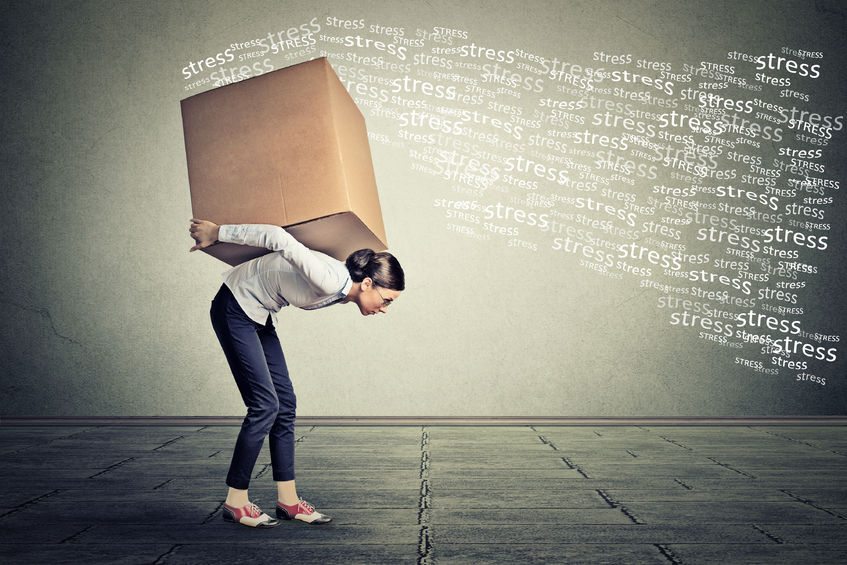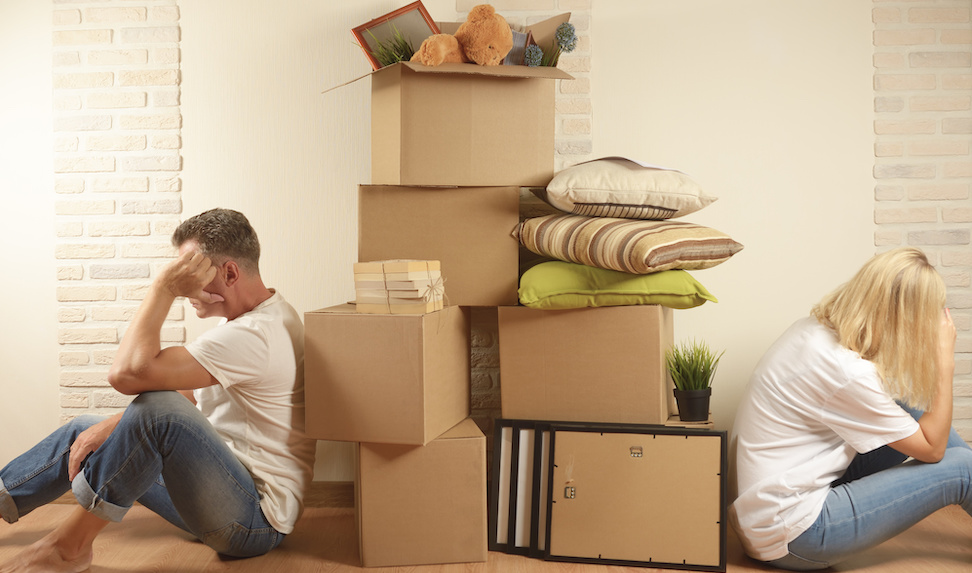It’s a feeling many of us know all too well. The excitement of a new place mixed with the overwhelming dread of packing tape, boxes, and endless to-do lists. Moving is consistently ranked as one of the most stressful things we can go through. In fact, one survey found that 64% of people called their recent move the most stressful experience they’ve ever had. But why? It’s more than just logistics. The stress of moving is deeply tied to the disruption of our routines, our emotional attachment to home, financial pressures, and the big, scary unknown. If you’re feeling the weight of it all, you’re not alone. Understanding the psychology behind this stress is the first step, and learning some practical strategies for overall stress management can make this huge life transition feel much more manageable.
How Stressful Is Moving Compared to Other Life Events?
It’s not just in your head—moving is objectively a major life stressor. When you look at the data, it’s right up there with events like divorce, changing jobs, or even the birth of a child. It often acts as a stress multiplier because it rarely happens in a vacuum. A move is usually triggered by another significant life event, piling stress upon stress.
The Holmes-Rahe Stress Scale and Moving
Have you ever heard of the Holmes-Rahe Stress Scale? It’s a tool psychologists use to measure the stress load of different life events. On this scale, a “change in residence” scores 25 points. That might not sound like a lot on its own, but stress is cumulative.
Think about why you’re moving. Is it because of a new job (38 points)? A marriage (50 points)? Or a divorce (73 points)? These scores add up quickly. If your total score goes over 300 within a year, the scale suggests you have an 80% chance of developing a stress-related illness. It shows how a seemingly simple move can contribute to a much larger pile of mental and physical strain.

Survey Data on Moving Stress
Recent surveys paint an even clearer picture. One study found that 42% of people report stress and 41% report anxiety before the move even happens. Thankfully, those numbers drop to 19% and 18% after settling in, but the transition period is intense. A telling 2020 study revealed just how high the stakes are: 64% rated moving as their most stressful experience. That’s significantly higher than the 44% who said the same about divorce or the 31% who pointed to having a baby.
Psychological Reasons Why Moving Is So Stressful
Beyond the boxes and the budget, there are deep psychological reasons why relocating throws us for a loop. Our brains are wired to see major environmental changes as a potential threat, triggering a fight-or-flight response. And our homes are so much more than just buildings; they are centers of security, identity, and comfort.
Loss of Familiarity and Security
Our homes are the backdrop to our daily routines. It’s where we know the floorboards creak, where the morning light hits just right, and where we can navigate in the dark. Leaving behind that familiar neighborhood, the corner coffee shop, and the daily commute triggers a real sense of loss. This disruption activates the brain’s threat response system because the predictable, safe world we’ve built is suddenly gone. It’s why even a move you’re excited about can feel surprisingly sad.
Emotional Attachment to Home
Our homes are silent witnesses to our lives. They hold the memories of first steps, holiday celebrations, late-night conversations, and quiet Sunday mornings. Leaving a home can feel like saying goodbye to a part of yourself and your history. This emotional weight is heavy, and it’s one of the core reasons moving feels so draining. You’re not just packing up stuff; you’re packing up years of your life.

Fear of the Unknown and Uncertainty
Humans are creatures of habit. We find comfort in predictability. Moving throws all of that out the window. Will I like my new neighbors? Where’s the best grocery store? Will I make new friends? What if I don’t like my new job? This wave of uncertainty can create a constant, low-level hum of anxiety. Resisting this fear of the unknown is natural, making the unpredictable nature of a move one of its most stressful components. The sheer number of questions without immediate answers can easily become overwhelming.
Practical and Logistical Causes of Moving Stress
While the psychological impact is huge, let’s be real: the practical side of moving is a beast. The logistics alone are enough to cause immense pressure, and when you layer them on top of the emotional turmoil, it’s a recipe for burnout.
Financial Pressure and Hidden Costs
Moving is expensive. There are the obvious costs, like hiring movers, buying packing supplies, and paying security deposits. But then the hidden costs start creeping in: utility connection fees, changing your address on everything, unexpected repairs, and buying new things to fit the new space. This financial uncertainty adds a huge layer of anxiety. Worrying about going over budget can make every decision feel high-stakes.
Time Constraints and Overwhelming Tasks
Moving often comes with a non-negotiable deadline—a lease ending, a new job starting, or a home closing date. This time crunch forces you to tackle a mountain of tasks in a short period. You have to sort through every single possession, pack, label, clean, handle paperwork, transfer utilities… the list goes on. The pressure can lead to rushed decisions and a feeling of being completely swamped. It’s a perfect scenario for anyone wondering how to overcome decision fatigue.
Physical Exhaustion from Moving
Don’t underestimate the physical toll. Packing, lifting heavy boxes, endless trips up and down stairs, and long hours on the road are physically exhausting. This fatigue wears down your resilience, making you more susceptible to emotional stress. When your body is tired, your mind has a much harder time coping with everything else, creating a vicious cycle of physical and mental exhaustion.
Emotional and Mental Health Effects of Moving
The combined weight of emotional and logistical stress can have a real impact on your mental health. It’s important to recognize the signs so you can be gentle with yourself and get the support you need. The general stress effects on body can be amplified during such a significant life change.

Moving Anxiety and Sleep Disruption
It’s completely normal to feel anxious during a move. This can show up as constant worry, racing thoughts that keep you up at night, irritability, and a persistent feeling of being overwhelmed. Insomnia is particularly common, as your brain refuses to shut off from the endless to-do list and what-if scenarios. This anxiety can peak right in the middle of the transition when uncertainty is at its highest.
Relocation Stress Syndrome
This is a recognized condition that can affect people of all ages. Relocation Stress Syndrome (RSS) involves intense feelings of sadness, confusion, and disorientation after a move. Key symptoms include:
- Intense homesickness
- Anxiety and mood swings
- Changes in sleep patterns
- Difficulty concentrating
- Physical symptoms like headaches or fatigue
- Withdrawing from social activities
It’s a sign that your mind and body are struggling to adapt to the new environment.
Moving Depression and Social Isolation
For some, the stress can trigger symptoms of depression. You might feel a lack of motivation, lose interest in activities you once enjoyed, and struggle with feelings of deep sadness or emptiness. A big contributor is social isolation. Leaving behind your established support system—friends, family, and community—can lead to profound loneliness as you start from scratch in a new place.
How Moving Disrupts Daily Life and Routines
Our daily routines are the invisible structures that keep us grounded. Moving demolishes them. Your workout schedule, your family’s dinner routine, your quiet morning coffee ritual—it all gets upended. This disruption affects everyone in the household differently, adding another layer of complexity to the transition.
Changes in Environment and Community
Suddenly, simple errands become challenging. You have to figure out where to buy groceries, find a new doctor, identify the best route to work, and discover local parks or restaurants. This constant need to navigate an unfamiliar world requires a lot of mental energy and can add to the daily stress of adjusting.
Impact on Children and Family Dynamics
Moving is especially tough on kids. They’re leaving their friends, their school, and the only world they’ve ever known. They may struggle to adapt, which can show up as acting out, sadness, or anxiety. Supporting them through this transition adds to the parents’ own stress, and the collective strain can create tension within the family.
4 Strategies to Cope with Moving Stress
Okay, so moving is stressful. We get it. The good news is that you can do a lot to manage it. Being proactive rather than reactive is key. Here are some strategies to help you navigate your move with more ease.

Planning and Organization Techniques
Feeling in control is a powerful antidote to anxiety. Start planning 6-8 weeks before your move.
- Create a Master Checklist: Write down every single task, from sorting the garage to changing your address with the post office.
- Break It Down: Divide large tasks into small, manageable chunks. Instead of “Pack the kitchen,” make it “Pack the junk drawer” and “Pack the glassware.”
- Delegate: You don’t have to do it all yourself. Assign tasks to family members or hire help if you can.
- Use Tools: Moving apps or a simple spreadsheet can help you track your progress and keep everything in one place.
Self-Care and Stress Management Practices
This is non-negotiable. You can’t pour from an empty cup.
- Protect Your Sleep: Try to stick to a consistent sleep schedule as much as possible.
- Eat Nutritious Food: It’s tempting to live on pizza and takeout, but nourishing food will give you the energy you need.
- Move Your Body: Even short walks or simple stretches can help. Engaging in physical activities to reduce stress is incredibly effective.
- Take Micro-Breaks: When you feel overwhelmed, step away. Practice deep breathing for stress management for just a few minutes, or try the 5-4-3-2-1 grounding technique (name 5 things you see, 4 you can touch, 3 you can hear, 2 you can smell, and 1 you can taste).
Maintaining Social Connections
Don’t let yourself become an island.
- Stay in Touch: Schedule regular calls or video chats with your friends and family from your old town. Their support is vital.
- Explore Early: If possible, visit your new neighborhood a few times before you move to get a feel for it.
- Get Involved: Once you’ve moved, make an effort to join a local club, a gym, or a volunteer group to start building new connections.
Creating a Sanctuary Space
When you arrive at your new home, it will likely be a sea of boxes and chaos. To combat this, prioritize setting up one room—usually the bedroom—as a sanctuary. Unpack it first. Make the bed with clean sheets, put a lamp on the nightstand, and make it a comfortable, clutter-free zone. Having one calm space to retreat to can make a world of difference when you feel overwhelmed and need to relieve stress quickly.
Moving is tough, there’s no way around it. But by understanding why it’s so stressful and arming yourself with practical coping strategies, you can protect your mental well-being and make the process smoother. Be patient and compassionate with yourself. It takes time to adjust and for a new house to truly feel like home. You’ve got this. And if you’re looking for more tips on navigating life’s challenges, feel free to explore more resources here at notonetype.org.


Có thể bạn quan tâm
Meditation for Stress Management: 11 Proven Techniques
Stress affects millions of Americans daily, triggering physical and emotional responses that can impact overall...
Nov
How to Overcome Decision Fatigue: 10 Proven Strategies to Reclaim Your Mental Energy
Ever get to the end of the day and feel like you can’t even decide...
Nov
Physical Activities to Reduce Stress: Exercises for Mental Well-Being
Feeling overwhelmed? You’re not alone. When life gets hectic, our body’s stress response can go...
Nov
Stress Management: Proven Strategies to Reduce Stress and Improve Wellbeing
Stress is a universal human experience. It’s that feeling of being overwhelmed when your to-do...
Nov
Deep Breathing for Stress Management: Techniques to Calm Your Mind and Body
Breathing. It’s the first thing we do when we enter the world and the last...
Nov
Stress at Work: Causes, Signs, and Proven Strategies to Manage Workplace Stress
Stress at work affects millions of employees worldwide, leading to decreased productivity, health problems, and...
Nov